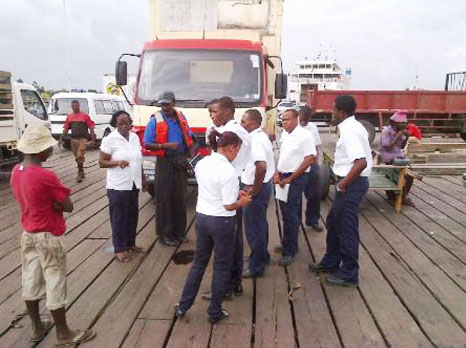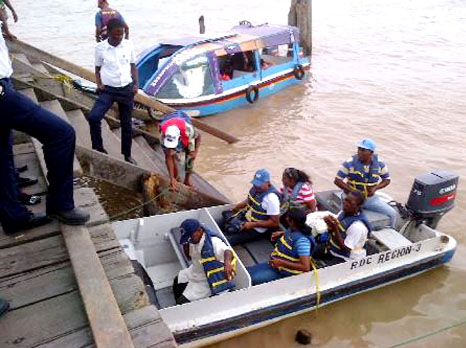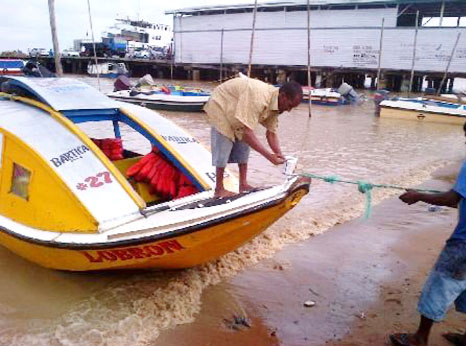Amid public criticism of its performance, the Maritime Administration Department (MARAD) yesterday launched an “aggressive” safety campaign in the aftermath of two horrific boat collisions that claimed 16 lives in just over a month.
A release yesterday from the Government Information Agency (GINA) said that MARAD has embarked on an aggressive safety campaign on river transportation following the two deadly boat collisions.

It said that the accidents which occurred one month apart have put maritime safety under severe scrutiny and MARAD has responded to the challenge, moving swiftly to ensure complete enforcement of regulations.
Yesterday’s campaign targeted Bartica, Region Seven; Supenaam and Charity, Region Two; Georgetown, and Vreed-en-Hoop and Parika stellings in Region Three, the release added. Officials moved to enforce licensing of boats, boat captains, emergency and fire equipment and the proper use of life jackets.

MARAD officials, with maritime cadets, coordinated with boat operators and passengers on the safety campaign at Parika. GINA said that by the end of the exercise close to 20 defaulters were identified. Some were granted time to correct their faults by a prescribed time.
The boat owners and operators acknowledged the need for the campaign and complied with regulations. Many were quick to move towards installing the required items in their boats. A river patrol has been implemented and will see a roaming presence on the Essequibo River where routine checks will be carried out.

MARAD official Michael Tennant in an invited comment told GINA that the campaign is being carried out to promote safety on the waterways while simultaneously enforcing the laws governing the operation of passenger and other vessels. He said that the response has been commendable and the administration hopes to continue the campaign for an extended period.
Passengers and boat operators responding to the campaign stated that effective monitoring is definitely needed, GINA reported. They also noted that proper identification must be made by officials conducting the awareness campaign and members of the patrols must always be clearly identified.
They stated that defaulting parties must be made an example to the public so a stern message is left as an example to others who may want to do the same.








